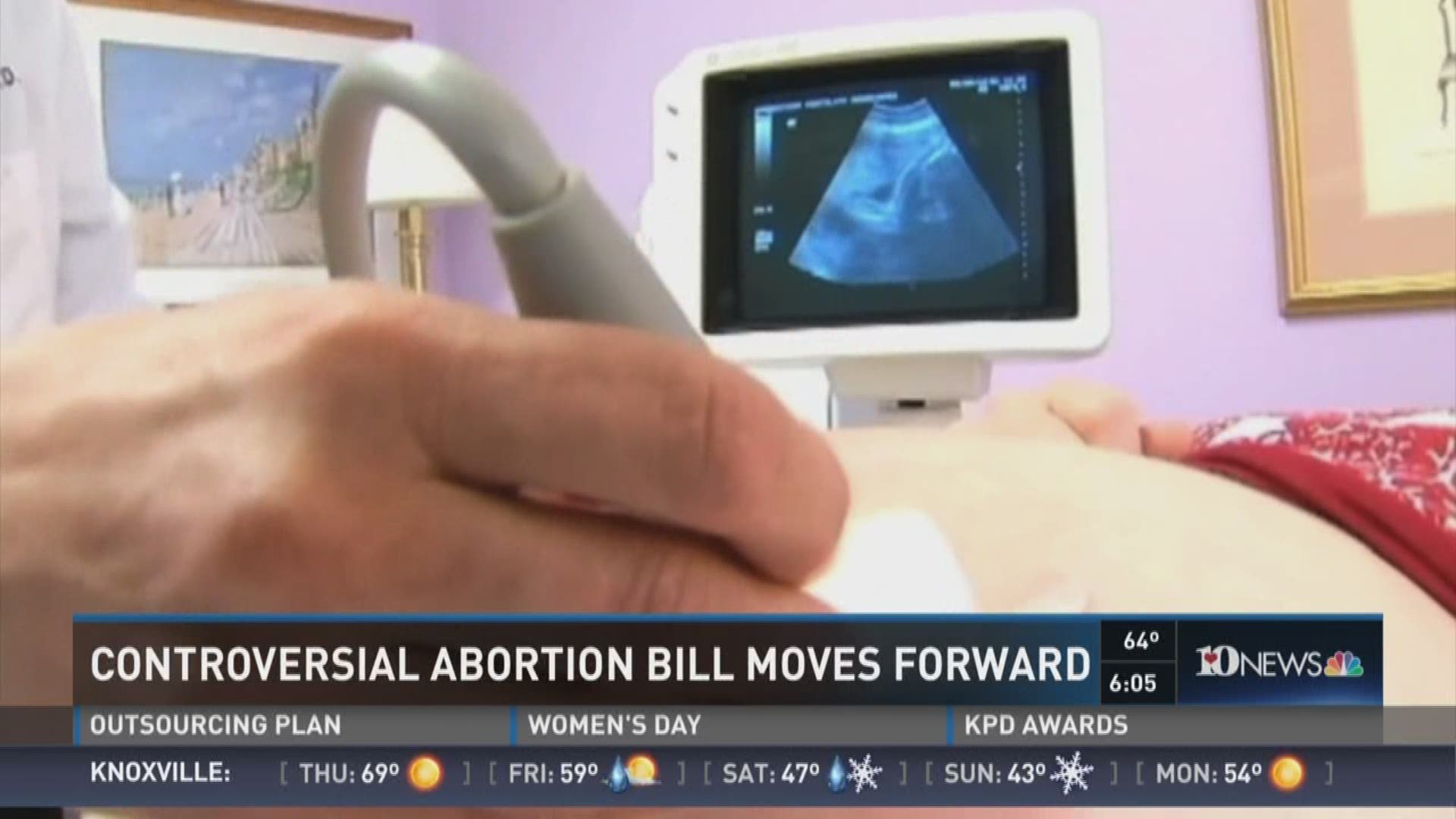A House subcommittee approved one abortion bill while rejecting another more controversial measure on Wednesday.
The House Health Subcommittee approved an abortion bill, sponsored by Rep. Matthew Hill, R-Jonesborough, that would not allow abortions in Tennessee after 20 weeks unless the pregnancy threatened the life of the mother.
The committee's approval, done with a voice vote, came after nearly 45-minutes of testimony, discussion and debate.
Minutes after the committee approved the measure, another abortion bill, which would have banned abortions after a fetal heartbeat is detected, was effectively halted for the year after a motion by a Republican lawmaker.
Hill said the purpose of his bill was to define viability in state law.
Ahead of the vote, the committee heard testimony from two mothers who said they had to get abortions after discovering serious complications with their child that left them no choice but to terminate their pregnancy.
As the committee considered the bill, Rep. John Ray Clemmons, D-Nashville, raised several questions about Hill's bill, while also expressing doubt as to its need.
"Abortion is very rare after viability," Clemmons said. "Abortions post-viability are prohibited."
Hill said the state's law does not explicitly prohibit abortions after viability but that is the standard of care in Tennessee.
“To codify a standard of care is beyond reasonable when that standard of care is intended to protect life,” Hill said.
At several points during the discussion, audience members outwardly reacted to the debate, at one point cheering Clemmons and at another point joining in a chorus of "No" after Hill discussed court rulings.
Immediately after the committee vote on Hill's legislation, the panel took up the so-called "heartbeat bill," which was sponsored by Sen. Mae Beavers, R-Mt. Juliet, and Rep. Micah Van Huss, R-Jonesborough.
Opponents said the legislation effectively would make abortions illegal because some women don't learn they are pregnant until after a heartbeat can be detected, which typically occurs in the earliest weeks of pregnancy.
The bill would have also required pregnant women to hear or view a fetal heartbeat before going through with an abortion. That part of the proposed law might be defensible, Tennessee Attorney General Herbert Slatery wrote in a recent opinion.
Slatery called the heartbeat bill "constitutionally suspect," though admitted that some aspects of the bill are defensible.
Beavers has sponsored multiple abortion-related bills this session, but this is the strictest.
As a practical matter, none of Tennessee’s abortion clinics perform abortions past 16 weeks.
Beaver's bill has drawn opposition from unexpected quarters.
Pro-life group Tennessee Right to Life's president Brian Harris said his group opposed the measure because of its likelihood of being found unconstitutional.
"Running legislation that is documented to be unconstitutional by the Supreme Court is not a good use of our time," Harris said.
Despite no discussion on the Beavers and Van Huss bill, Rep. Cameron Sexton, R-Crossville, motioned to send the bill the first calendar of 2018 - which effectively stops the legislation for the year.
The committee voted 5-4 in favor of deferring action on the bill until next year.

